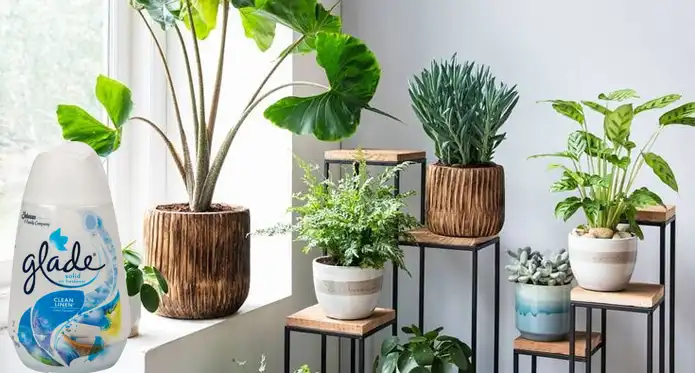Last Updated on March 8, 2023
Plants need fresh air to survive since they take in carbon dioxide and release oxygen, which is essential for the plant and animal kingdoms. Sadly, that’s not always the case. Plants can be suffocated by synthetic air fresheners, especially if they’re used excessively.
That’s why you need to know how air fresheners kill plants. Even though indoor air fresheners can add a much-needed boost of freshness to any room, many contain chemicals that can harm your indoor plants.
If it’s harsh enough, the indoor plant may die. To understand more about air fresheners’ harmful effects on plants and how to prevent them, continue reading.
How Do Air Fresheners Kill Plants : Detailed Explanation
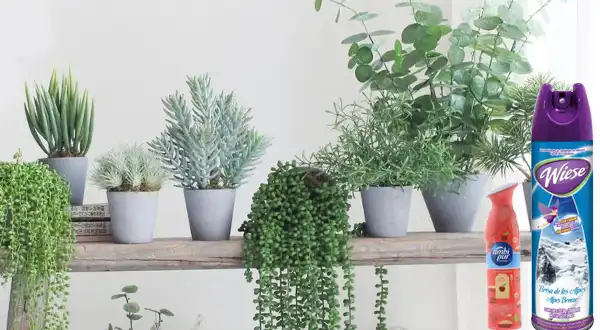
Air fresheners mask unpleasant odors and make indoor spaces more pleasant. But, many air fresheners contain harsh compounds that can harm indoor plants. The most common type of air freshener uses a propellant to release a fragrance into the air.
When these aerosols are sprayed, they deposit a fine mist of chemicals on surfaces like countertops, floors, and furniture. Plants exposed to this mist can suffer leaf damage, reduced growth, and flower bud drop.
Synthetic air fresheners often contain harsh chemicals that can be very toxic to plants. A citrus-based air freshener can discolor the leaves, while an ethanol-based air freshener can cause them to wilt. VOCs (volatile organic compounds) are especially prevalent in air fresheners. These chemicals can cause leaves to yellow and stunt growth.
VOCs can also contribute to indoor air pollution, forcing plants to produce less oxygen and more carbon dioxide, negatively impacting their development. Some air fresheners also contain phthalates, which are known to reduce the growth of young plants.
Occasionally, chemicals in air fresheners can even cause plants to die if used excessively near them. You should avoid air fresheners or use products that don’t contain these harsh chemicals to protect your indoor plants. You can also open windows and doors to let fresh air into your home.
Side Effects of Using Air Fresheners Near Indoor Plants
Air fresheners can indeed help mask stinky smells, but they can also damage indoor plants. Many air fresheners contain chemicals such as phthalates, commonly used in air fresheners, and they can damage the leaves of plants and inhibit their ability to photosynthesize.
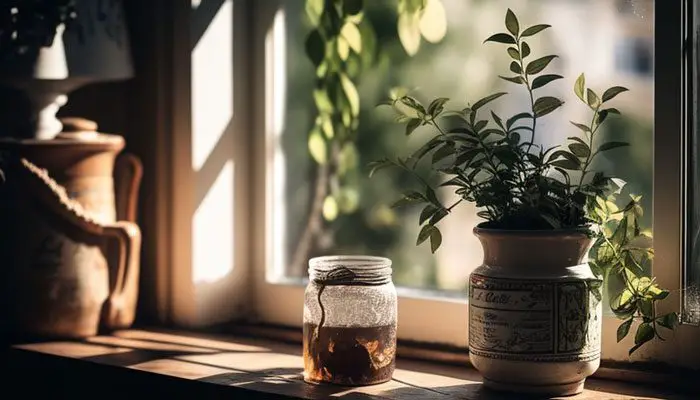
Here are some risks associated with using air fresheners around indoor plants:
- Leaf damage: Air freshener chemicals can damage the leaves of your plants, causing them to turn brown and brittle. Sometimes, these chemicals can also cause the leaves to drop altogether. In addition to leaf damage, air fresheners can cause the roots of your plants to become damaged or even killed.
- Leaf discoloration: While air fresheners use it excessively, one common side effect is leaf discoloration. This is because the chemicals in air fresheners can interact with the chlorophyll in the leaves, causing them to change color. In some cases, the leaves may even develop brown spots or streaks.
- Leaves yellowing: Air fresheners can cause yellow leaves on indoor plants if used near them. This is especially true of older leaves, which are more likely to be coated with the chemicals from the freshener. While yellowing leaves are not necessarily a sign of serious damage, they can be unsightly and may indicate that the plant is not receiving the nutrients it needs.
- Flower bud drop: Flower bud drop is a common side effect when indoor air fresheners are used near indoor plants. The chemicals in air fresheners affect the plant’s ability to absorb water and nutrients. This can lead to the buds falling off before they have a chance to bloom.
- Plant wilting: It is common for plants to wilt from exposure to air fresheners. Due to their chemical composition, air fresheners prevent plants from being able to take up water through its roots. Thus, the plant may become dehydrated and begin to wilt. In severe cases, air freshener exposure can even kill a plant.
- Stunt plant growth: Air freshener chemicals can stunt plant growth or even kill delicate plants. The fragrance from air fresheners can be overwhelming for some plants, causing them to become stressed and unhealthy.
When your plants start discoloration or experiencing any other side effects from using air fresheners near them, you should stop using them immediately and move them away from the air freshener or switch to a natural substitute.
Which Air Freshener Ingredients are Toxic for Plants?
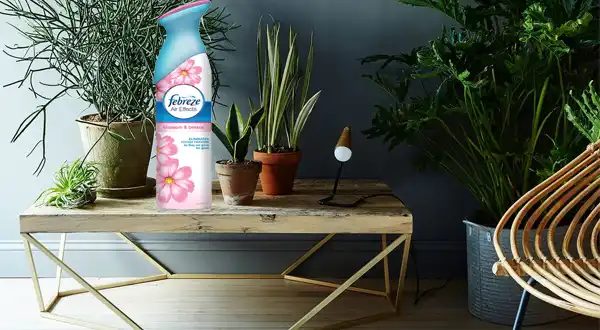
Many different ingredients can be found in air fresheners, and not all are safe for plants. Some of the most common toxic ingredients include phthalates, parabens, and formaldehyde.
But phenol and ethanol are two common indoor air freshener ingredients that can damage plant leaves. Phenol is a strong disinfectant that can cause burns and irritation, while ethanol acts as a drying agent that can cause leaves to shrivel and drop off.
Similarly, formaldehyde is another ingredient that is commonly found in air fresheners. This chemical is known to be toxic for plants and can also cause respiratory problems in humans.
Linalool and limonene can cause leaf burn and stunted growth in plants. Also, some air fresheners contain phthalates, which can interfere with a plant’s ability to photosynthesize.
What are Air Freshener Oils Good for Plants?
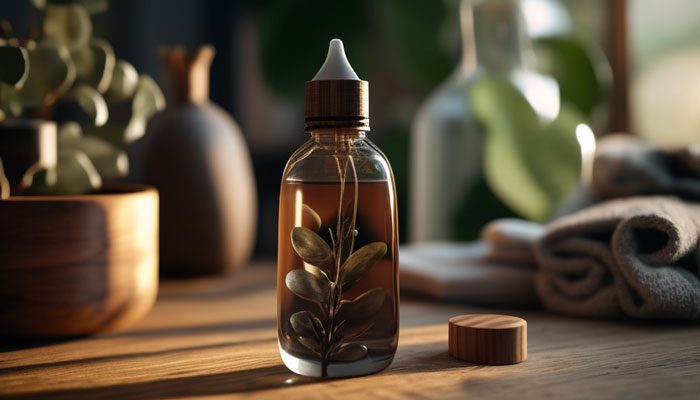
Many people enjoy the scent of air fresheners, but did you know that some air freshener oils can also be good for plants? Essential oils such as eucalyptus, lavender, and peppermint oil can help to repel pests and improve plant growth.
When used in a diffuser, these oils can also help to purify the air and reduce indoor pollutants. Also, these air freshener oils can help to mask the odor of overripe fruit or other strong bad smells. Plus, they can be a welcome addition to any home or office.
Can I Use an Air Freshener Diffuser for My Plants?
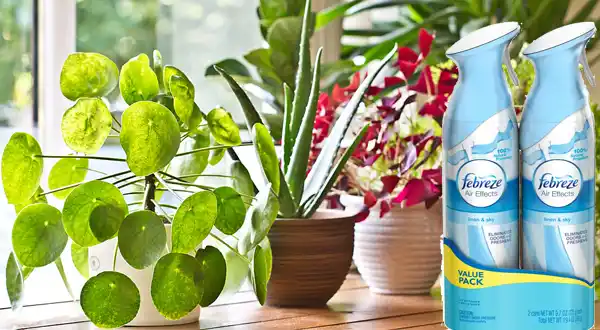
Yes, you can use an essential oil diffuser to humidify your plants. This is a great way to increase the humidity around your plants without worrying about mold or mildew. You’ll find that many essential oil diffusers also function as humidifiers.
But, you’ll have to use it in a small space or very close to your plant to provide humidity. An essential oil diffuser is an excellent option if you’re looking for an easy and effective way to add extra moisture to the air around your plants.
Will an Oil Air Freshener Diffuser Hurt Plants?
Even though plants absorb carbon dioxide and give us oxygen, that doesn’t mean they don’t have delicate sensibilities. Many common household items can be damaging to our green friends. Air fresheners are one such item. Though they might make our homes smell nice, some air fresheners’ chemicals can harm plants.
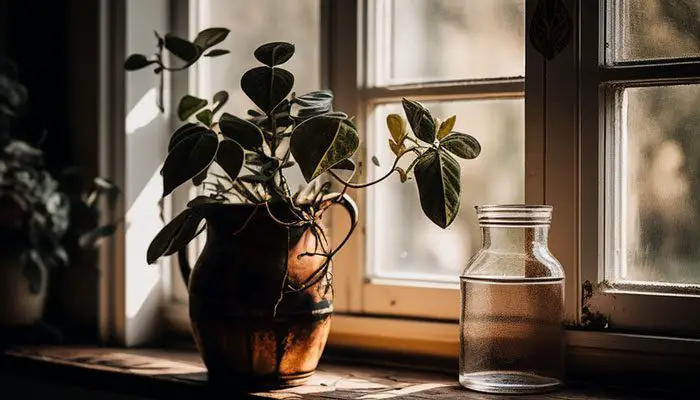
Diffusers work by releasing a fine mist of fragrance into the air. Along with the fragrance, they release particles of chemicals that can cause damage. The chemicals can sometimes strip away the waxy coating that protects leaves from dehydration.
But some plants, such as ferns, thrive in humid environments and can benefit from the moisture emitted by an air freshener diffuser. Essential oils can help to repel pests, stimulate growth, and enhance the natural appearance of plants. Using a diffuser with essential oils can be a valuable tool for any indoor gardener.
You Can Also Read: How to Select Air Freshener for Your Toilet?
Do Plants Like Air Freshener Diffusers?
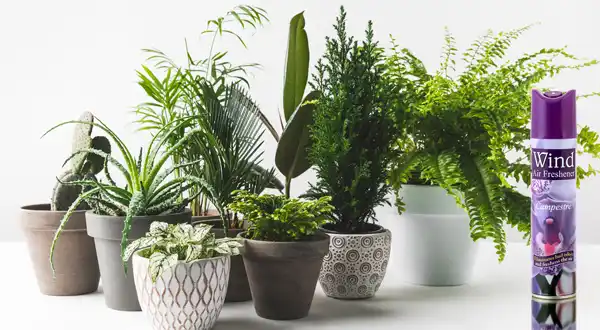
Most people know that plants need direct sunlight and water to survive, but the air is another important element. Plants rely on a steady supply of fresh air to provide the carbon dioxide they need for photosynthesis. Also, the air around plants helps to regulate moisture levels and prevent fungal growth.
For these reasons, many gardeners use air fresheners or diffusers to keep their plants healthy. But, make sure you choose the right product. Some air fresheners contain harmful chemicals, so read the labels carefully before purchasing.
Choosing an all-natural product that uses essential oils rather than synthetic fragrances is best. With a little research, you can find an air freshener that will keep your plants healthy and your home smelling fresh.
What is the Safest Air Freshener to Use Near Plants?
The chemicals found in most air fresheners can be harmful to plants. Prolonged exposure to these chemicals can cause leaf discoloration, stunted growth, and even death.
Fortunately, there are a few natural air fresheners you can use around plants. These air fresheners usually contain essential oils, which provide a pleasant scent without any harmful side effects.
Also, many natural air fresheners contain ingredients that help improve plants’ health. For example, some air fresheners contain citronella, which repels pests such as insects and spiders. So, using a natural air freshener is not only safe for plants but can also help them to thrive.
Topics of Discussion: How Healthy is Kitchen Air Freshener?

